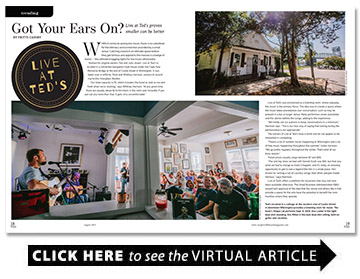Got Your Ears On?
Live at Ted’s proves smaller can be better
BY Fritts Causby
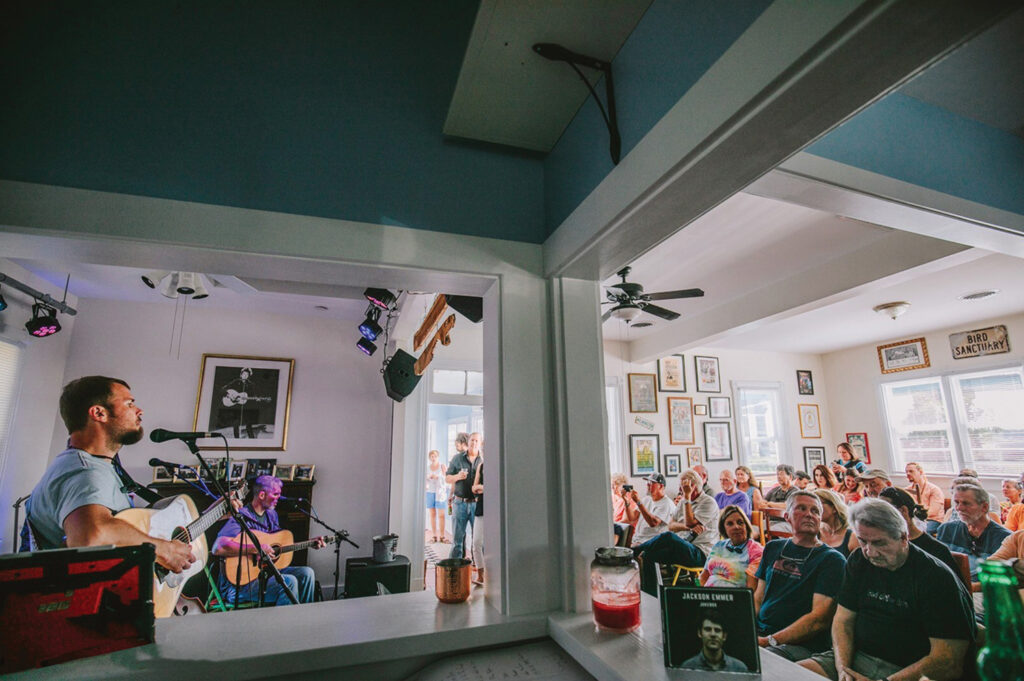
When it comes to seeing live music, there is no substitute for the intimacy and connection provided by a small venue. Catching a band in an intimate space before they get famous and appeal to the masses is a badge of honor — the ultimate bragging rights for live music aficionados.
Named for original owners Ted and Julia Jewell, Live at Ted’s is located in a converted bungalow-style house under the Cape Fear Memorial Bridge at the end of Castle Street in Wilmington. It was taken over in 2019 by Trent and Whitney Harrison, owners of recording facility Hourglass Studios.
“Our total capacity is 70, which includes the band as well as me and Trent when we’re working,” says Whitney Harrison. “At any given time, there are usually about 62 to 64 chairs in the room and, honestly, if you put out any more than that, it gets very uncomfortable.”
Live at Ted’s was envisioned as a listening room, where enjoying the music is the primary focus. The idea was to create a space where the music takes precedence over conversation, such as may be present in a bar or larger venue. Many performers share anecdotes and the stories behind the songs, adding to the experience.
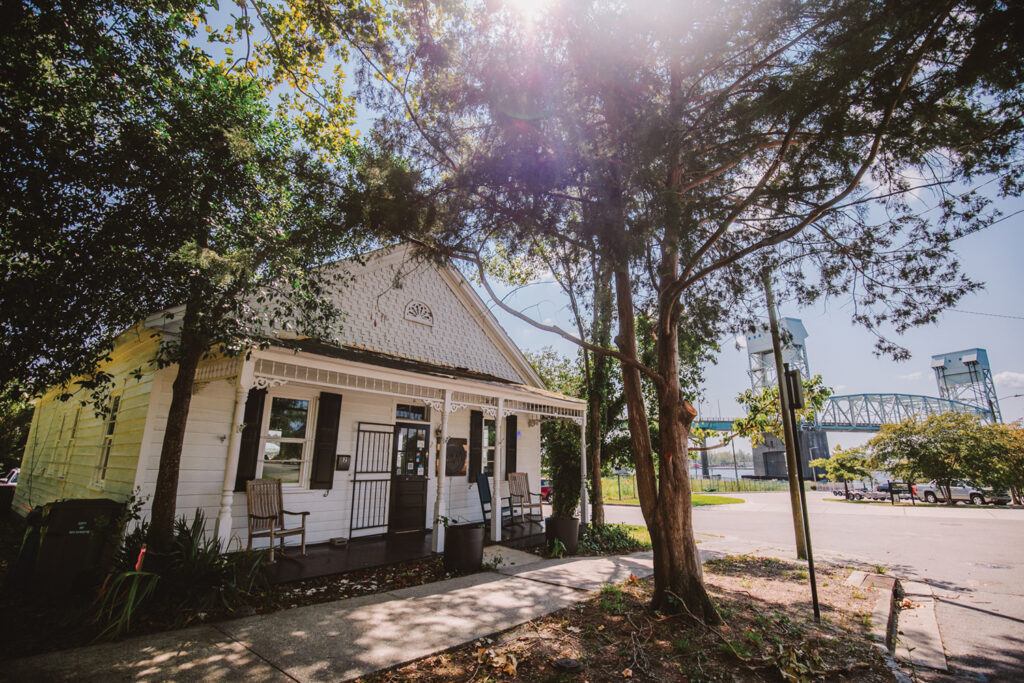

“We kindly ask our patrons to keep conversations to a minimum,” Harrison says. “This is our nice way of saying that talking during the performance is not appropriate.”
The owners of Live at Ted’s have a niche and do not appear to be interested in competing.
“There’s a lot of outdoor music happening in Wilmington and a lot of free music happening throughout the summer,” notes Harrison. “We go pretty regularly throughout the winter. That’s kind of our busy season.”
Ticket prices usually range between $7 and $20.
“The last big show we had with Darrell Scott was $65, but that was what we had to charge to make it happen, and it’s really an amazing opportunity to get to see a legend like him in a small place. He’s known for writing a lot of country songs that other people made famous,” says Harrison.
Live at Ted’s offers a platform for musicians that may not have been available otherwise. The Small Business Administration (SBA) issued tacit approval of the idea that the venue and others like it that provide a space for the arts have the potential to benefit the communities where they operate.
The pandemic hit six months after the Harrisons took over the venue.
“We whittled our bills down to the minimum that we could get away with just to keep it going,” explains Harrison. “And we were so fortunate to receive one of the Shuttered Venue Operators grants the government was doing. It was honestly a lifesaver.”
The grant was created to protect small independent venues, promoters, theaters and entertainment venues from bankruptcy. The SBA operates the $16 billion program, which was passed into law during the pandemic.
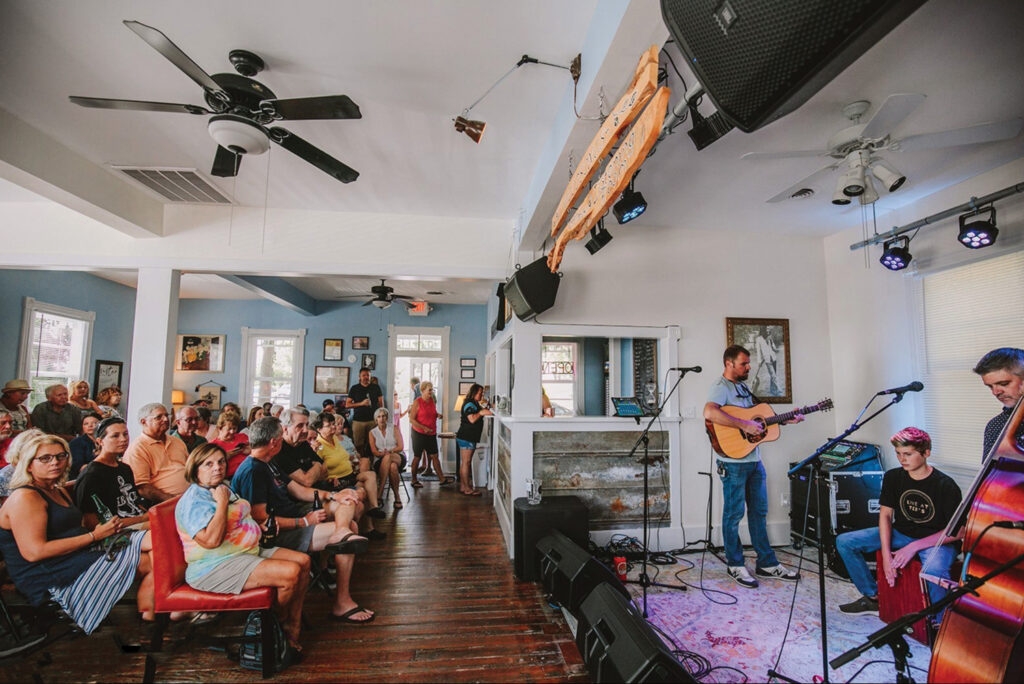
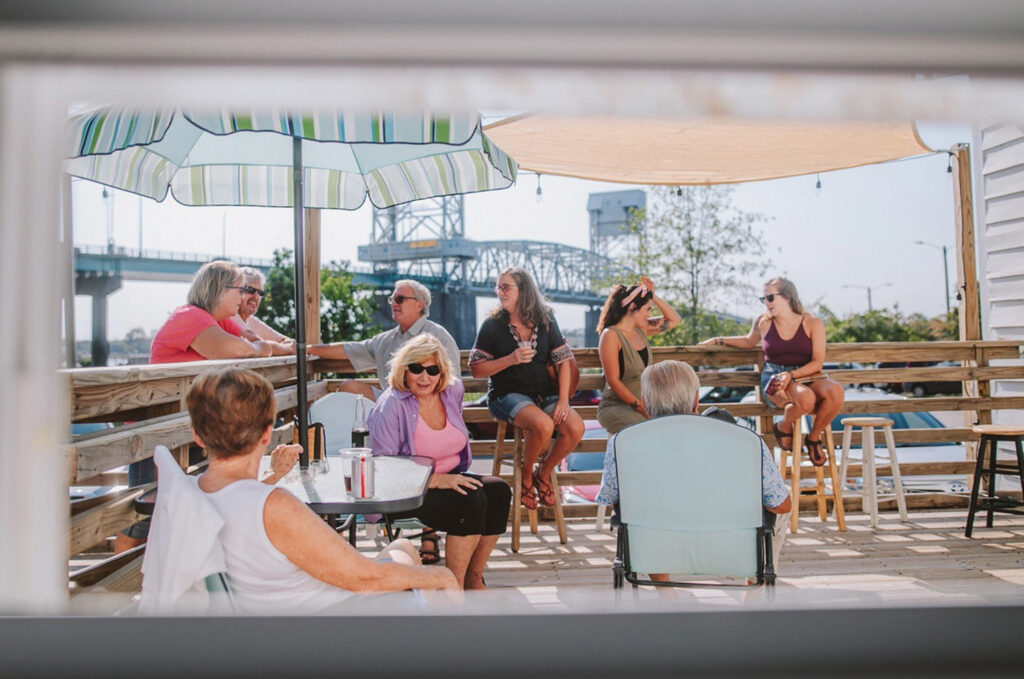
Live at Ted’s is a mom-and-pop-style business. Whitney is the booking manager, cleaner and main bartender. Trent runs the sound and takes care of all the technical aspects. Whitney’s brother, longtime Wilmington musician Alex Lanier, fills in for Trent when he is not available.
The venue is paying the grant forward by adding to the complexity of the Wilmington music scene and providing a place for musicians to refine their craft.
“Many of the traveling musicians are full-time, doing it pretty much all year,” Harrison says. “Some of the local folks that play here might have day jobs or other side hustles. Even some of the touring artists have side hustles, just to help make ends meet.”
It is not uncommon for touring musicians to request overnight parking for the vans they travel and live in.
“We’re always like, ‘Yeah, absolutely.’ I think it’s really cool how they make it happen and make it work for them,” says Harrison.
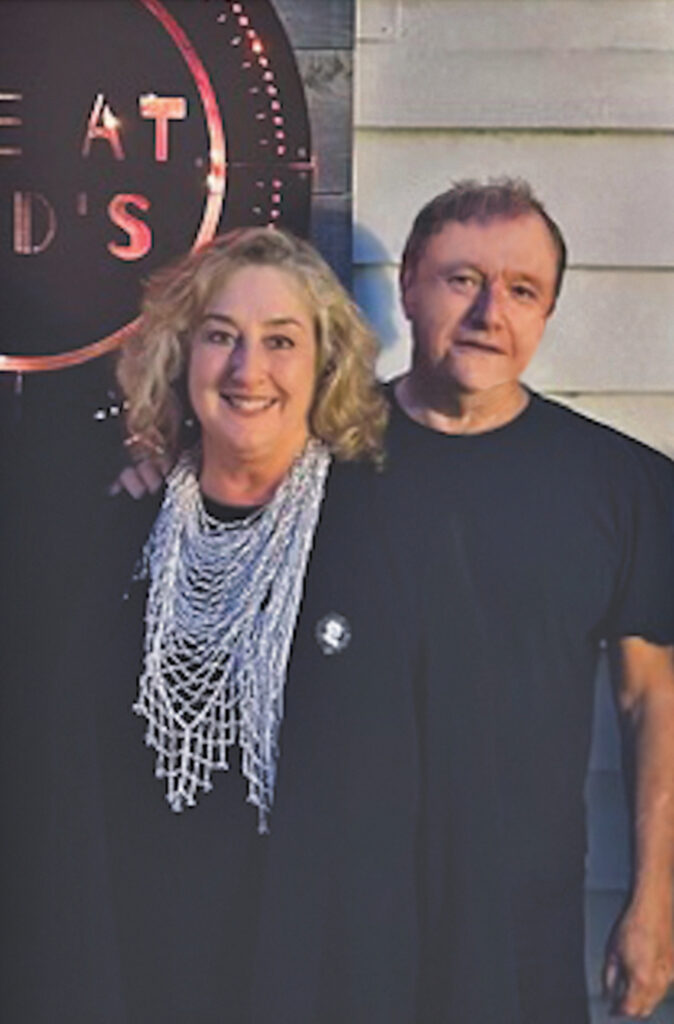

Owning a music venue was a natural progression for the Harrisons. Whitney was a chorus teacher at New Hanover High School for four years and studied music in college.
“I loved teaching. But Trent needed help with the studio, and it seemed like the right move,” she says. “We had been doing more production-type work. And then Ted’s happened in that period, too. It was like everything kind of fell into place. It’s funny, I thought I would be a teacher for 30 years.”
Trent Harrison completed the recording and engineering program at Guilford Technical Community College before graduating from the UNCW Cameron School of Business with a degree in entrepreneurship.
“Usually, one of us is always there. And if we can’t be there then we just kind of choose not to be open. This is just because it’s very special to us,” says Harrison. “It’s very close to our hearts, so we feel really connected to providing this experience for everyone.”
